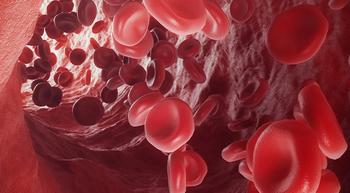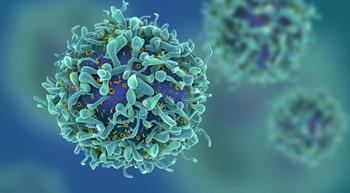
The FDA has granted orphan drug designation to PEP-010 for pancreatic cancer, advancing its development as a potential novel treatment for the disease.

Spencer, Assistant Editor of CURE®, has been with MJH Life Sciences since 2024. A graduate of Rowan University with a bachelor's degree in health communication, Spencer manages CURE's Facebook, Instagram and YouTube. He also enjoys spending time with family and friends, hiking, playing guitar and rock climbing.

The FDA has granted orphan drug designation to PEP-010 for pancreatic cancer, advancing its development as a potential novel treatment for the disease.

Real-world data suggest Jakafi shows limited benefits in CALR-mutated myelofibrosis.

Jelmyto demonstrated long-term efficacy in low-grade upper tract urothelial carcinoma, with most maintaining complete response after several months.

Following the Bacillus Calmette-Guérin shortage, the first patient with bladder cancer has been dosed with recombinant Bacillus Calmette-Guérin in the U.S.

The first patients have been enrolled in the HEROES trial, exploring de-escalation of anti-HER2 therapy in metastatic HER2+ breast cancer using circulating tumor DNA.

RECKGIST score may predict recurrence in neurofibromatosis type 1 GISTs, potentially guiding treatment decisions, according to study findings.

Vepdegestrant improved progression-free survival in patients with estrogen receptor 1 mutations in advanced ER-positive, HER2-negative breast cancer.

Dr. Joseph Mikhael discusses early signs, treatments and supportive care for multiple myeloma in an interview with CURE.

Gleevec response in GIST varies by mutational profile, with KIT-exon-11 mutation linked to better outcomes, emphasizing mutation testing for treatment decisions.

Circulating tumor DNA may be a prognostic biomarker for relapse and early recurrence detection in resected early-stage biliary tract cancer.

177Lu-edotreotide shows potential to extend progression-free survival in patients with grade 1 or 2 somatostatin receptor-positive gastroenteropancreatic neuroendocrine tumors.

Calquence plus Venclexta with or without Gazyva significantly improved progression-free survival in patients with untreated CLL.

Melissa Ursini, diagnosed with stage 2 colon cancer, shares her journey to raise awareness and encourage early detection through colonoscopies.

Brukinsa plus R-CHOP demonstrated high efficacy and durable responses in double-expressor lymphoma, with manageable safety, supporting further phase 3 trials.

Verzenio plus Faslodex improved progression-free survival in HR+/HER2– advanced breast cancer after CDK/6i failure, with a manageable safety profile.

Enhertu improved overall survival versus chemotherapy in HER2-positive metastatic gastric cancer, prompting an interim analysis and potential regulatory approvals.

The first patient with small cell lung cancer has been dosed in a trial of peluntamig (PT217) combined with chemotherapy.

Chemoradiation improves survival in cervical cancer patients, but benefits may decline after age 80, according to a study using SEER data.

Datroway demonstrated durable antitumor activity and an acceptable safety profile in advanced NSCLC with actionable genomic alterations, including EGFR and ALK subgroups.

Zongertinib, an investigational treatment for HER2-mutant advanced NSCLC, has received FDA priority review, showing positive results and favorable safety.

Ficerafusp alfa enters phase 2/3 trial for recurrent/metastatic head and neck cancer, evaluating its combination with Keytruda for first-line treatment.

SBRT improved local progression-free survival over RFA in small recurrent HCC, particularly in tumors 2 cm or less.

The addition of nab-paclitaxel to gemcitabine and cisplatin did not improve survival in advanced biliary tract cancer.

Neuropathy, skin rash, and hyperglycemia following enfortumab vedotin treatment were associated with improved PFS in metastatic urothelial carcinoma.

The FDA accepted Regeneron’s BLA resubmission for linvoseltamab in relapsed or refractory multiple myeloma, with a decision expected by July 10, 2025.

Breyanzi has shown significant efficacy and durable responses in patients with marginal zone lymphoma.

Tagrisso was linked to higher cardiac risks in patients with EGFR-mutant NSCLC, including a four-fold rise in cardiac events and reduced overall survival.

Dr. Marwan G. Fakih discussed the FDA approval of Lumakras with Vectibix for third-line treatment of KRAS G12C-mutated metastatic colorectal cancer.

A study found no significant HRQOL differences between Erleada-based therapies and ADT plus AAP for advanced castration-sensitive prostate cancer.

Alecensa weight gain is underreported in ALK+ NSCLC trials, highlighting the need for increased awareness and proactive management of this side effect.